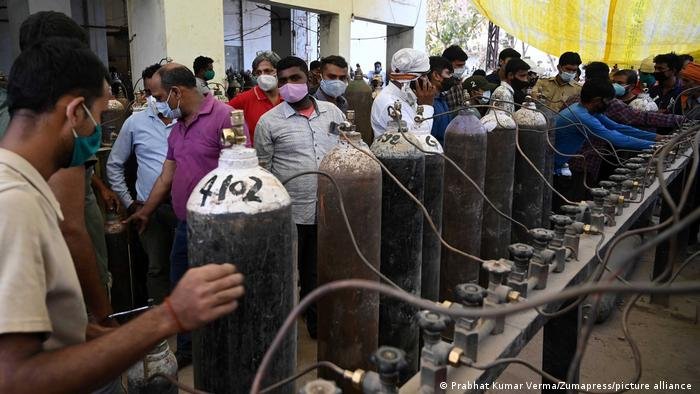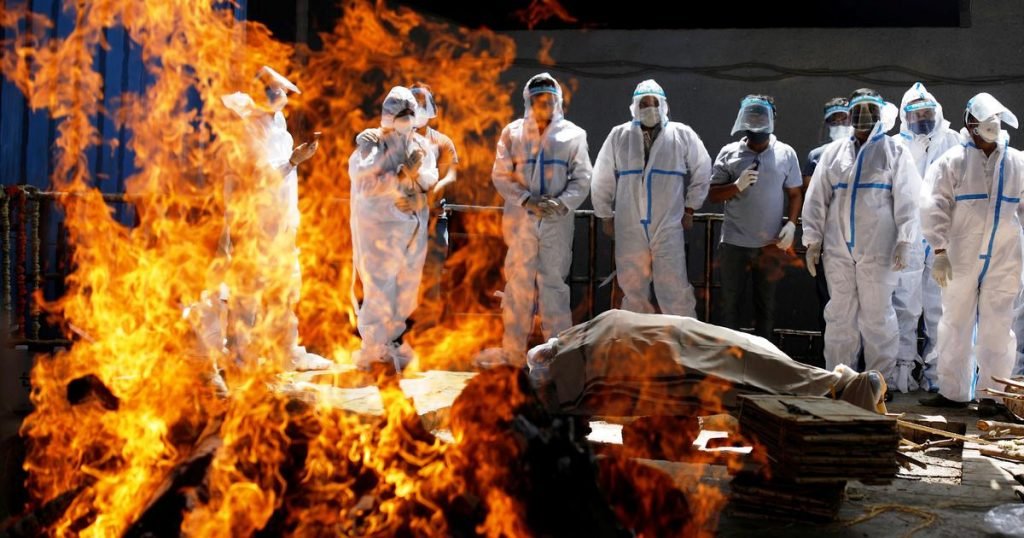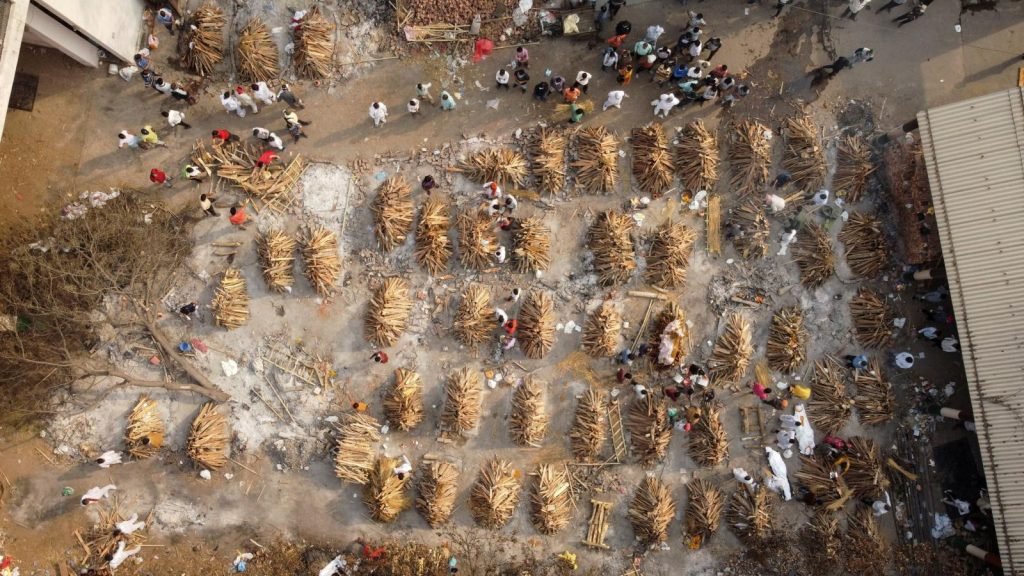How are world leaders responding to India’s COVID plight?

India is in the midst of a humanitarian disaster as it faces the second outbreak of coronavirus. On Sunday, the country reported 392,488 new COVID-19 cases, breaking the record for the most cases recorded in a single day anywhere in the world since the pandemic began. Due to a lack of cooperation between the central government, state governments, and hospitals, the country has struggled to cope with a sudden increase in demand for oxygen over the last two weeks, causing hospitals to post SOS messages on social media. There is also a scarcity of hospital beds and, most specifically, ventilators used to handle COVID patients that are critically ill.
“India’s health system is on the brink of collapsing,” Ashish Jha, dean of Brown University’s School of Public Health, wrote in a Washington Post article on Saturday.
As India faces the second coronavirus outbreak, aid continues to flood in from across the world. The world leaders have voiced their support, France’s President, Emmanuel Macron, has said that his country stands with India in the face of a conflict that seems to be affecting all. UK Prime Minister Boris Johnson stated that the government is considering what it can do to assist India. In contrast, Health Secretary Matt Hancock said that the country is prepared to assist in the war against the virus. At the same time, the Chinese government has also offered its assistance. Other countries that have pledged to send equipment, including

ventilators and oxygen concentrators, include Germany, Australia, Russia, and India’s long-time geopolitical foe Pakistan. Though India has struggled to persuade the United States to lift the ban on raw materials required for the Covishield vaccine, the Biden government has finally caved in due to the instability in India. It has announced that those in the impacted areas will obtain fast emergency test kits, ventilators, and personal protective equipment (PPE).
The government is also negotiating with Singapore and the United Arab Emirates to prepare for high-capacity tankers to be shipped by Indian Air Force transport planes to deal with the crisis. The supply of oxygen is being delayed due to a shortage of tanks. A total of 23 mobile oxygen generation plants from Germany will be airlifted to Armed Forces Medical Service hospitals treating COVID-19 patients.
A large number of big companies, including Google, Apple, Amazon, and Microsoft, have also offered to assist to tackle the situation. Amazon has teamed up with ACT Grants, Temasek Foundation, Pune Platform for Covid-19 Response (PPCR), and other organisations to airlift more than 8000 oxygen concentrators and 500 BiPAP devices from Singapore. Amazon India is now donating over 1500 oxygen concentrators and other essential medical devices to hospitals and medical centres. Meanwhile, Microsoft and Apple stated that they would continue to lend their voice, money, and technology to humanitarian operations and promote the procurement of life-saving oxygen concentrators.

Prime Minister Narendra Modi’s government has come under the fire for the country’s lack of preparedness for the second wave. When the world was fighting the second wave of the novel coronavirus, there were several major religious gatherings and political protests. The rallies drew a lot of controversy in the region.
“We were optimistic; our spirits were high after successfully battling the first wave,” Prime Minister Modi said on Sunday in a radio address, “but this storm has shaken the country.”
People in India and around the world are using the internet to provide much-needed assistance to beleaguered families and on-the-ground humanitarian organisations as the outbreak of COVID-19 increases the risk of viral mutations. Aiding India is not only a crucial humanitarian decision, but it is also one of the most important ways for the world to defeat COVID-19. India, which is in a state of emergency, needs all of the help it can provide. As shown by the amount of assistance it received from world leaders during times of turmoil, India has come a long way in maintaining its foreign relations.



















